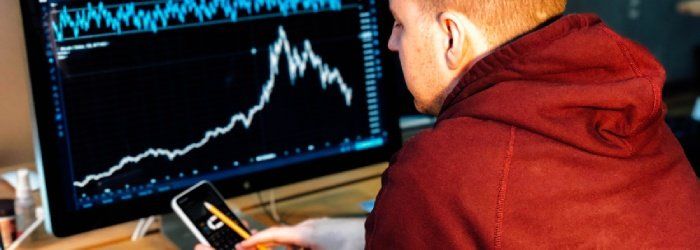Last Updated: March 26, 2024
Are You Eligible for a 401(k) plan?

Disclaimer: We are not qualified legal or tax professionals and are not giving advice. Always speak with a qualified professional before making any legal or financial decisions.
Unlock the full potential of your retirement savings with a 401k plan, a cornerstone of financial planning that offers unparalleled tax benefits and flexible investment options.
Setting up your 401k is a straightforward process that paves the way for a secure future, allowing you to tailor your investment strategy to meet your long-term goals.
Want to skip the article and speak directly to a debt specialist? Click here for a free consultation.
What is a 401k plan?
A 401k is a retirement plan that sets aside money for you over time and gains interest, such that when it's your time to retire, you have funds available set aside.
A 401(k) account contribution is an excellent example of how compounding can save you big time later in life - but only if the money contributed isn't withdrawn prematurely.
For example: If $10,000 is invested and it earns 10% each year ($1,000), at age 85 this investment would be worth more than $100,000 dollars!
The Pros and Cons of 401k Loans
Taking out a loan from your 401k can provide access to funds during challenging financial times, but also comes with drawbacks to consider.
The Pros:
- You're borrowing from yourself - the payments go back into your account
- Typically lower interest rates than other types of loans
- Avoids early withdrawal penalties
The Cons:
- Reduces retirement savings and potential growth
- Payments are made with after-tax dollars
- If you leave your job, the loan may need to be repaid quickly
- Adds complexity to your finances
Carefully weigh the pros and cons before deciding if a 401k loan is right for your situation. Also explore other options like hardship withdrawals.
Why you should invest in a 401k account
Countless investment advisors will tell you that it is in your best interest to pay for your own retirement, and using a 401k is one of the most sound ways to do so.
First, when you save in a 401(k) account, sometimes called an individual retirement account (IRA), you get a tax break now. That means that if the federal marginal income tax rate exceeds 15% then contributions may be deductible with respect to state and federal taxes.
You can also deduct some contributions from your company's taxable income which saves its money and allows it to reinvest in business expansion.
Second, not only do you get all or part of what you contribute back plus earnings each year without paying taxes on them until withdrawals are made, but your contributions can continue to grow tax-deferred.
One big advantage is that your money grows tax deferred until you withdraw the money from the account. So if your investments do well, as long as you don't touch them for a while, they should grow much bigger.
In addition, many employers will match up to a certain limit what they put in their 401(k) plan on behalf of an employee. Which means theoretically every dollar contributed by both employer and employee could be worth $2 or $3 later on when it's time to retire.
I know most accounts are only matching half of your contribution so they'll only double it but this amount can go really far when you're retired with little income coming in!
Learn more by reading How Much Should You Have in Your Retirement?
How to find out if your employer offers a 401k
Assuming your employer offers a 401k (which is typically the case if they offer any benefits), all you need to do is ask their Human Resources Department or check their website.
Employers are required by law to display information about how they match contributions and what investment funds they use on their cash balance plans, annuities, 403(b), and 401(a) retirement plan summary and prospectus materials and federal form 5500.
If you need to know whether or not your company offers a 401k plan, the simplest way would be to talk to somebody who manages the company/ has access to this kind of information. It might be an HR representative or head of human resources.
What is the 401k early withdrawal fee?
The 401k Early Withdrawal Fee varies from one provider to the next. If you cash out your 401k before the retirement age of 59 and a half, you'll have an early withdrawal penalty to pay.
The 401k early withdrawal fee is 25% of the total sum taken, and sometimes there may be withholding and tax fees depending on your qualified plan.
Basically, any early partial withdrawals from an IRA or 401k generally incur a withholding tax equal to 10% of the total balance withdrawn up to 102,000 (or 25%, whichever is greater).
For example, if you withdraw $50K from your account, then $5K will be withheld as withholding tax. The rest can be accessed at any time without any further penalties.
The amount to take out varies by individual plans, so if you're interested in taking out this financial service before you turn 65 years old it's important that you contact your employer for more details.
Is there a penalty for not having a 401k account?
The penalty for not investing in a 401k is $0. Specifically, not investing will cost you the opportunity to save on taxes and compound over time.
This doesn't seem like much at first, but when you factor in age and interest rates it can be quite significant.
If you were to invest about $2,000 per year for 30 years in an account with an 8% compounded return (which has historically been the average rate of return across many different accounts), after 30 years your investment would be worth about $200K that is then exempt from any taxes upon withdrawal.
So if you contribute $3,000 per year instead ($1,000 more) the value at the end of 30 years would be approximately $300K. However, you would have paid $15,000 more in penalties for the privilege of having an additional $100k to invest (that's a penalty of about $50 per day).
So the point is that early withdrawals may be costly. However, by using the Roth IRA you can avoid the early withdrawal penalty, but you will still pay taxes on it.
If You Lose Your Job
Losing your job can significantly impact your finances and 401k.
Here are some steps to take:
- Review your termination paperwork - Understand payment options for your 401k, severance, healthcare, etc.
- Avoid cashing out - Withdrawing early has penalties. Keep funds invested.
- Roll over your 401k - Move funds to an IRA to maintain tax-deferred growth.
- Review budget & cut costs - Losing a job means losing income. Reduce expenses where possible.
- Explore health insurance options - COBRA, spouse's plan, or ACA plans can provide coverage.
Job loss is challenging but planning ahead helps safeguard your finances and retirement savings. Our debt specialists can also help you navigate this transition.
Should you pay off debt before investing in a 401k?
The more debt you have, the more it makes sense to pay off some of your credit card and/or some student loan debt before investing in a 401K. Debt might also affect whether or not that investment works out well for you.
The decision to invest in a 401k and when and how much of your money to invests in one boils down to two factors:
1. How secure is my job?
2. What is the stock market like right now?
If you're unsure about whether or not you'll still be working with your employer after 10 years, then investing even 5% of your income into a 401k could make sense.
If your 401k's are paying you interest of less than 2.5% - it might be smarter to pay off your high-interest debts first, since they will have a greater impact on your financial life. Of course, you should always do what is best for your own situation and needs!
Learn more by reading How Katherine of Michigan Retired Debt Free
The average credit card rate in America is at 16%, while most stocks hover right around 5%.
People tend to start investing when they're young (around 18), but they usually don't max out their contribution until they're 25 or 30 years old.
You can speak to one of our debt relief specialists if you’d like to learn more about your debt reduction options.
FAQs
Conclusion
Some employers offer a 401k as an employee benefit. If you are eligible, it is worth considering contributing to your company's plan because of the tax advantages and other benefits that come with this type of retirement investment account.
You will have less money available now for spending today but more options in the future when you retire if you contribute regularly to your 401(k) account.
If you are struggling with overwhelming debt and want to explore your debt relief options, Pacific Debt Relief offers a free consultation to assess your financial situation. Our debt specialists can provide objective guidance relevant information and support to help find the right debt relief solution.
The best thing you can do is discuss it with an expert and come up with the decision that's right for you.
*Disclaimer: Pacific Debt Relief explicitly states that it is not a credit repair organization, and its program does not aim to improve individuals' credit scores. The information provided here is intended solely for educational purposes, aiding consumers in making informed decisions regarding credit and debt matters. The content does not constitute legal or financial advice. Pacific Debt Relief strongly advises individuals to seek the counsel of qualified professionals before undertaking any legal or financial actions.
✔ Accredited by Better Business Bureau with BBB A+ rating (4.93 rating and 1678 reviews)
✔ US News and World Reports and Bankrate ranked Pacific Debt Relief as one of “The Best Debt Relief Companies of 2024”
✔ 6.9 star rating by BestCompany.com (over 2379 client reviews)
✔ 4.8 star rating by TrustPilot based (over 1613 verified consumer reviews)
✔ ConsumerAffairs.com Accredited (over 544 verified reviews with an average rating of 5 stars)
✔ A Top 10 Rated Compan by TopTenReviews.com , ConsumersAdvocate.com and Top10debtconsolidation.com
✔ 4.6 star rating by Google (229 client reviews)
✔ 100% rating by SuperMoney (9 client reviews)
Reduce Your Credit Card Debt By Up to Half

BBB Reviews | 4.9/5.0 Rating









 Do Not Sell My Personal Information
Do Not Sell My Personal Information